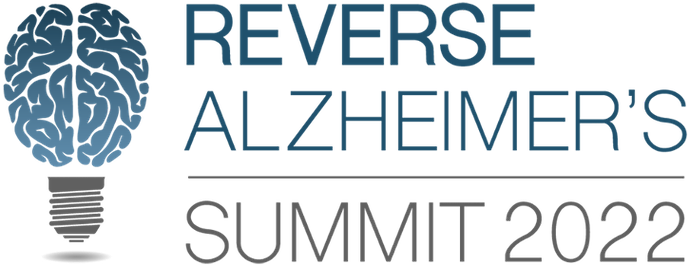June 20, 2022
Reverse Alzheimer’s Summit 2022

By Dale Bredesen, M.D., Chief Science Officer for Apollo Health
I hope that everyone enjoyed the Reverse Alzheimer’s Summit 2022, organized by Dr. Heather Sandison and featuring many experts such as Dr. David Perlmutter Dr. Terry Wahls, and Dr. Mark Hyman, as well as health coaches and others who are achieving reversal of cognitive decline in their patients and clients. To many, the summit’s title is inconceivable — after all, virtually every “expert” will tell you that there is nothing that will reverse the cognitive decline of Alzheimer’s or pre-Alzheimer’s — and yet, speaker after speaker is describing (and some have published) just that.
This is a truly exciting time — just as with the first successful treatment of leukemia and the first successful treatment of diabetes, seeing people thought to be hopeless and untreatable actually improve and sustain their improvement inspires gratitude in all of us; and as we as a community see more and more outcomes, the protocol evolves and the efficacy continues to be enhanced.
I look forward to the day when everyone is on prevention or earliest reversal, and Alzheimer’s is a very rare disease. However, that is not yet the case, and most people are still waiting until the latter stages of the process: MCI (mild cognitive impairment, the third of four stages) or dementia (the fourth and final stage). What distinguishes those who respond well and reverse their cognitive decline from those who do not respond as well and do not reverse their cognitive decline?
Most of those who respond well: (1) start relatively early in the course (MoCA scores of 20 or above, although even some people with MoCA scores of 0 have shown improvement); (2) get into ketosis (1.0-4.0 mM BHB in blood or 10-40 ACES on breathalyzer), either with or without exogenous ketones; (3) become insulin sensitive; (4) address the various contributors identified on their reports, such as inflammation, toxicity, nutrient deficiency, or vascular disease; (5) continue to optimize — in fact, some continue to improve even years into the protocol; (6) if not improving after 6 months of compliance, work with their practitioners to identify unaddressed contributors such as infections or hormonal deficiencies; (7) make sure their gut is healed, oral and gut microbiomes optimized, and nocturnal oxygenation is good; (8) work with a supportive health coach, knowledgeable practitioner, and understanding partner.
Most of those who respond less well: (1) do only part of the protocol, often taking supplements alone; (2) do not get into ketosis; (3) do not continue to optimize; (4) seek out many doctors, and try a little of many different approaches; (5) remain insulin resistant; (6) continue exposure to toxins; (7) work only intermittently on the protocol; (8) do not heal their guts, optimize their microbiomes, and normalize their nocturnal oxygen saturation; (9) do not address the energetic support to their brains (blood flow, oxygenation, mitochondrial function, and ketosis).
Preventing and reversing the cognitive decline associated with Alzheimer’s and pre-Alzheimer’s are not only feasible, such results have been published, proven by clinical trial, and new examples are happening every day. Working together, we can now exert a major impact on the global burden of dementia, and on the quality of life for millions of patients and their families.




